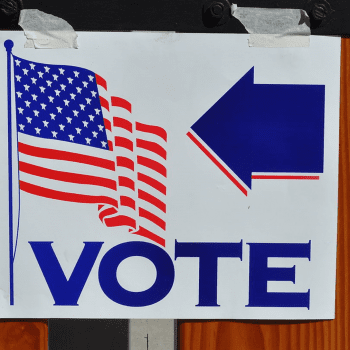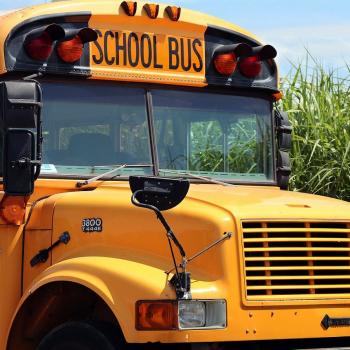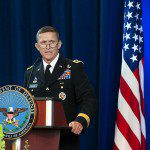No, the Democratic Party isn’t engaged in nationwide, coordinated voter fraud, or some kind of systematic hacking of voting machines or vote totaling equipment or the files that contain the totals as forwarded from local precincts.
But at the same time, the major networks and newspapers have played a concerning role in this election: promoting Trump in the primaries, and only after he was the Republican nominee, discovering that he was Hitler reincarnate. Or at least it feels that way to many Republicans — that, either in pursuit of high ratings or in pursuit of an easy opponent for Hillary, they gave Trump far more airtime than he deserved, and only covered scandals once it was too late for another Republican to claim the nomination. And it’s not unreasonable to say that Democrats, and pundits and journalists in general, have “cried wolf” with prior years’ GOP candidates, repeatedly claiming that one after the next was a dangerous extremist, so as to have seriously damaged their credibility in now announcing that Trump really is about to lead us to a fascist state.
(Or, according to Slate, will start a Race War even if he loses — which seems to be an invitation for a pre-emptive strike by progressives.)
Now, Trump’s allegations of a rigged election — at least in terms of what he has to say on Twitter, seem to be largely a matter of the latter. For instance, “This election is being rigged by the media pushing false and unsubstantiated charges, and outright lies, in order to elect Crooked Hillary!” on October 15th.
But Rudy Giuliani did raise the specter of voter fraud. According to CNN:
“I’m sorry, dead people generally vote for Democrats rather than Republicans,” the former New York City mayor told CNN’s Jake Tapper on “State of the Union.” “You want me to (say) that I think the election in Philadelphia and Chicago is going to be fair? I would have to be a moron to say that.”
And in both cases — the question of voter fraud and the question of whether journalists are behaving inappropriately — the response of the media, pundits, and politicians, is to call these questions and accusations wholly out of bounds. No one should ever question the integrity of the electoral process of the United States.
How soon we forget that the Left cried out in 2000 that the election was “stolen” and unjustly decided by the Supreme Court rather than the American people, and for years after activists claimed that George Bush was not the duly elected president of the United States!
And it wasn’t that long ago that voter fraud was routine. Here’s the bottom line of an article from Slate that popped up on the question of the 1960 election: the belief that Nixon refused to fight for a recount of the election “for the good of the country” is largely untrue — recount efforts were indeed mounted, that didn’t change the totals — but
The GOP’s failure to prove fraud doesn’t mean, of course, that the election was clean. That question remains unsolved and unsolvable. But what’s typically left out of the legend is that multiple election boards saw no reason to overturn the results. Neither did state or federal judges. Neither did an Illinois special prosecutor in 1961. And neither have academic inquiries into the Illinois case (both a 1961 study by three University of Chicago professors and more recent research by political scientist Edmund Kallina concluded that whatever fraud existed wasn’t substantial enough to alter the election).
On the other hand, some fraud clearly occurred in Cook County. At least three people were sent to jail for election-related crimes, and 677 others were indicted before being acquitted by Judge John M. Karns, a Daley crony. Many of the allegations involved practices that wouldn’t be detected by a recount, leading the conservative Chicago Tribune, among others, to conclude that “once an election has been stolen in Cook County, it stays stolen.” What’s more, according to journalist Seymour Hersh, a former Justice Department prosecutor who heard tapes of FBI wiretaps from the period believed that Illinois was rightfully Nixon’s. Hersh also has written that J. Edgar Hoover believed Nixon actually won the presidency but in deciding to follow normal procedures and refer the FBI’s findings to the attorney general—as of Jan. 20, 1961, Robert F. Kennedy—he effectively buried the case.
That was 56 years ago, of course. And, with the exception of Philadelphia, maybe, none of the big cities with a history of Machine politics are in battleground states. But to claim these very real practices of voter fraud are so long ago in the past that it’s offensive to even question ballot integrity in the present is itself an injustice.
But that’s only part of the issue.
The bigger question is this: is the media playing an “unfair” role in this election?
Did the media in fact, manage its reporting on Trump in the primaries to ensure that he would win — and, if so, was that because he was a ratings-boost, or was it a deliberate act to give Clinton a weak opponent? Regarding the latter, it is, I suppose, reassuring that none of the DNC e-mails that revealed so much support for Clinton despite official neutrality, show any coordination to boost Trump, though the media would hardly need marching orders from the DNC to do so.
And is the media now eagerly promoting stories that put Trump in a bad light while intentionally staying silent on similar news about Clinton, out of a desire to avoid anything that contributes, in any way, to drops in support for Clinton? There’ve been plenty of statements from journalists that so much is at stake that they can’t take any chances (but, no, I don’t have any direct quotes).
Consider this:
Only 32 percent of Americans say they have “a great deal” or “a fair amount” of trust and confidence in the media “to report the news fully, accurately and fairly,” an eight percentage point drop from 2015 and the lowest in Gallup’s polling history.
That’s according to at US News summary of the recently-released poll, which continues,
The highest trust level was 72 percent in 1976 in the heyday of media investigations of government corruption such as the Watergate scandal and government failures such as the Vietnam war. During the next two decades, the media’s reputation eroded badly, with only 53 percent in 1997 trusting the media, defined by Gallup as newspapers, television and radio.
That’s a dramatic shift.
So what next?
Me, I have to log on and get to work . . .












